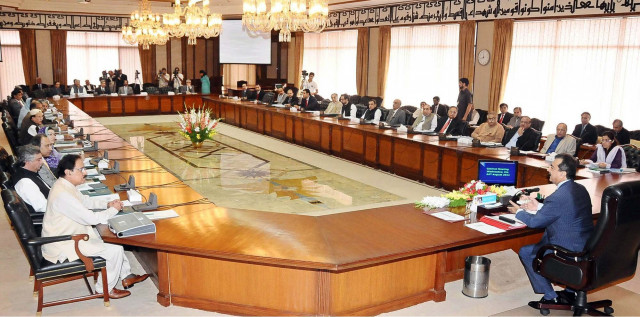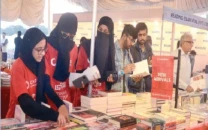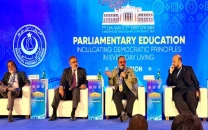Karachi unrest: Cabinet’s nod for ‘surgical operations’
Nine localities identified for ‘indiscriminate’ action.

The federal cabinet approved ‘surgical operations’ in nine identified areas of Karachi against target killers and decided to mount the crackdown indiscriminately – transcending political considerations. However, the identity of the localities where the operations are to be conducted have not been disclosed.
The cabinet also resolved that it will not allow Karachi to become hostage to terrorists.
Announcing these decisions at a press briefing on Wednesday, Federal Minister for Information and Broadcasting Firdous Ashiq Awan said that with the support of the law-enforcement agencies, the situation in the troubled city would normalise and that there was no need for the army to step in. “We don’t want to give Karachi a new wound by calling out the Army,” she said.
A ‘Youm-e-Dua’ (Day of prayers) will be observed on Jumatul Wida for peace in the city. Prime Minister Yousaf Raza Gilani has appealed to religious scholars and clerics to offer special prayers for peace and stability in Karachi.
She defended the government’s decision not to invite the Army to stop violence in Karachi by saying that it would merely be a cosmetic treatment while political solution was the only lasting way out. “Military operation in Karachi could only be a temporary solution but the government was trying to find a permanent answer to the issue through political means,” Awan said.
“We cannot be dragging the army to every city where there is instability,” she added. Army actions in Karachi in the past could not deliver the desired results.
(Read: ‘Army under no circumstances’)
Responding to a question, she said that the Pakistan Army was an important national institution which had always come to the aid of the civil administration whenever its help was needed. The Army had rendered unprecedented services for the nation in fight against terrorism and during last year’s floods, she added.
She quoted the prime minister as telling the cabinet: “A handful of people cannot be allowed to take the country hostage. Action had to be taken to eliminate gangsters and target killers.”
The minister said that the Sindh government wanted to utilise the services of Rangers, police and other civil law-enforcement agencies to restore peace in the metropolis. These agencies would get to the bottom of the matter and even expose foreign sponsors involved in Karachi violence.
She said that Interior Minister Rehman Malik is in Karachi overlooking special cells called ‘operation rooms’ that are being established for these culprits. Once caught, the criminals would be exposed and their credentials along with affiliation of groups would be shared with the media. “Nothing would be hidden,” said Awan.
She told a questioner that it was the right of the Muttahida Qaumi Movement (MQM) leadership to decide when they wanted to rejoin the coalition governments at Centre and the Sindh province.
(Read: No timeframe yet for MQM’s return)
Taking a potshot at some politicians, she said the leaders should not talk through the media but instead call each other directly.
While briefing about some other decisions taken during the cabinet meeting, Awan said that a committee was being formed under the chairmanship of finance minister which would be meeting regularly to work on steps to end load-shedding in the country. The cabinet also approved the financial document for the 425-MW power project at Checho Ki Malian and Nani Pur.
Published in The Express Tribune, August 25th, 2011.



















COMMENTS
Comments are moderated and generally will be posted if they are on-topic and not abusive.
For more information, please see our Comments FAQ